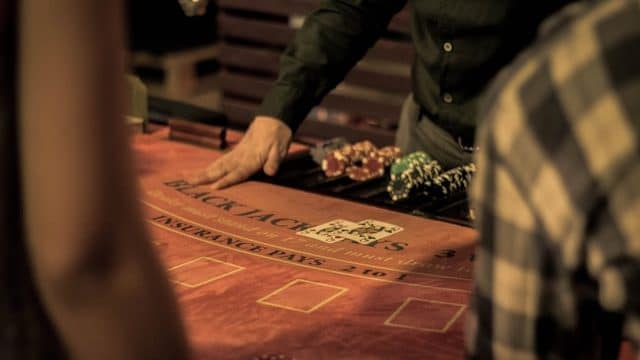
MANILA (LiCAS News): The order of a total ban on offshore gambling firms by Philippine president, Ferdinand “Bongbong” Marcos Jr., during his third State of the Nation Address on July 22, was welcomed by the county’s bishops [Sunday Examiner, July 28].
Bishop Rupert Santos of the Diocese of Antipolo described the move as “the best decision … It is good for our country, particularly in the midst of its allegedly linked to activities of crimes, scams, and torture.”
Bishop Leopoldo Jaucian of Bangued also lauded order to end the Philippine Offshore Gaming Operators (POGOs).
“I am personally happy that POGO has been banned,” Bishop Jaucian told Radio Veritas.
POGOs, which started during the time of former president, Rodrigo Duterte, have been linked to an increase in crime, which is a concern raised by several bishops.
Despite Marcos Jr.’s pronouncements, questions arose after reports surfaced of POGOs recently being renamed as Internet Gaming Licensees [IGLs]. In May, Pagcor reportedly issued regular licenses to 40 IGLs, along with nine provincial licenses
Aside from prostitution, the industry has been linked to online scams, human trafficking, illegal immigration and employment, kidnapping and even drugs.
“The disorder that it caused our society as well as the desecration of our country must stop,” Marcos Jr. declared, adding, “Effective today, all POGOs are banned.”
He also instructed the state gaming regulator Philippine Amusement and Gaming Corp. [Pagcor] to “wind down” the widespread gambling industry by the end of the year.
Following the ban, some 20,000 foreign workers were given 60 days or until September 24 to leave the Philippines.
As we celebrate the 500 years of Christianity in the Philippines. The Chaplaincy to Filipino Migrants organises an on-line talk every Tuesday at 9.00pm. You can join us at:
https://www.Facebook.com/CFM-Gifted-to-give-101039001847033
Despite Marcos Jr.’s pronouncements, questions arose after reports surfaced of POGOs recently being renamed as Internet Gaming Licensees [IGLs]. In May, Pagcor reportedly issued regular licenses to 40 IGLs, along with nine provincial licenses.
Bishop Santos urged the government to prioritise the welfare of the people and the nation over profit “by getting rid of the breeding grounds for drugs, gambling, and prostitution.”
Police say that from January 2017 to June 2023, at least 4,355 people became victims of POGO-related crimes such as online scams and human trafficking
Opposition group, Akbayan, said in a media statement on July 23, called for “strict enforcement” of the ban and demanded accountability for those “responsible for the proliferation” of these gaming operations in the country.
POGOs have been in the the Philippines since 2003. Attempts by the government to regulate them began in 2016 during the Duterte administration.
In September 2021, Duterte imposed taxes on POGOs to finance government measures to mitigate the effects of the COVID-19 pandemic.
In July 2024, the government reported revenues from them soaring from 28 billion pesos [about US$477.8 million] in 2022 to 56 billion pesos [US$955 million] in 2023.
However, reports showed them deteriorating into crime centres.
Police say that from January 2017 to June 2023, at least 4,355 people became victims of POGO-related crimes such as online scams and human trafficking.
In May and June 2023, police rescued 3,814 victims during raids on POGO premises, including massage-parlors-turned-prostitution-shops and an aquarium-shaped torture chamber, reports show. The victims include foreign nationals such as Vietnamese.
Carlos Conde, senior researcher of the New York-based Human Rights Watch, said authorities should investigate reported abuses.



